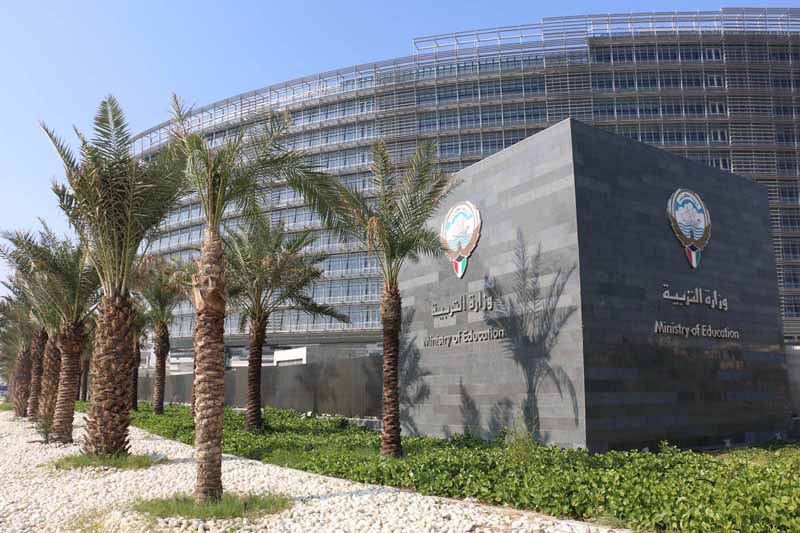
KUWAIT: The Ministry of Education issued a statement related to the main concerns of parents in private and foreign schools in Kuwait. In a post on its official Instagram page, the Education Ministry announced a discussion with private, foreign school owners about the various issues and topics related to finishing the 2019/2020 school year as well as preparations to start the 2020/2021 school year through online learning. Parents and teachers were not included in the discussions.
According to the statement, Dr Abdul Mohsen Al-Huwailah, Assistant Undersecretary for Private Education at the Ministry of Education, said that school owners gave their opinions during the discussion on the measures that need to be taken with regards to providing simultaneous, interactive education online and allowing students to improve their research and self-learning skills. Dr Huwailah said that discussion focused on seven main topics, which are:
- Preparations taken at private schools to transform education from conventional into remote education (online).
- Discussing the standards that private schools have taken to select the remote education management system and online learning platforms.
- Discussing the education ministry's plan to finish the 2019/2020 school year at foreign private schools online.
- Finishing the 2019/2020 school year for grade 12 students at Arab private schools through online learning.
- Discussing the education ministry's plan to start the 2020/2021 school year at Indian, Pakistani and Filipino schools in early August 2020.
- Discussing the start of the 2020/2021 school year at all private schools online, and reviewing schools' suggestions on how to implement e-learning in a way that maximizes the benefit of students, especially for kindergarten and students with special needs.
- Discussing the education ministry's plan to reduce school tuitions for the period in which learning is done remotely, in line with maintaining proper services and quality education for students.
Dr Huwailah said that the meeting was 'fruitful', adding that the Private Education Department is currently working on regulations to be announced later to regulate the 2020/2021 school year at private schools.
Fees must be paid
Earlier in the week, the Ministry of Education (MoE) affirmed that parents must pay school fees for the spring semester of the 2019-2020 school year. In an interview with Arabic newspaper Al-Jarida, Dr Al-Huwailah, said that according to clause 11 of ministerial resolution number 14550/2020 pertaining to delayed tuition fee payment until the end of the school year, private schools are justified in collecting the delayed fees for the school year 2019-2020 as long as students concluded the year and received their certificates, regardless of whether studies were held in class, online or via any other means. The Private Education Department has not made an official statement via its social media channels in this regard.
Huwailah stressed that online learning - be it at the beginning of August to complete the 2019-2020 school year or at the beginning of the new academic year - is mandatory for all, especially after MoE made it clear that students will not be allowed back into class for now. "The ministry has opted for online education as long as the pandemic persists," he underlined.
Huwailah added that MoE has discussed many issues concerning private schools with school owners, including issues related to the current academic year (2019-2020) and the next school year (2020-2021). He also noted it was agreed that all teachers should be present in schools to conduct online education in order to follow up their performance in virtual classes and provide the requirements of online learning.
Huwailah said the private education department will work on facilitating the return of stranded private school teachers to Kuwait and that the department will contact all relevant bodies to do so. "We are currently discussing the problem of kindergarten pupils and how to deal with them in terms of online learning. Suggestions have been made to teach them in evening classes, but relevant bodies are still considering the matter," Huwailah concluded.
Private or foreign schools in Kuwait are divided up into a variety of curricula. There are American, British, Canadian and French schools that follow the curricula and calendars of their respective countries. There are Indian schools that are already now teaching online in alignment with the Indian educational system. Pakistani, Filipino and other schools follow along with the curricula of their homelands. There are also Arabic and bilingual schools which more closely follow the Kuwait public school calendar and curricula and these are usually considered private schools but not foreign.




